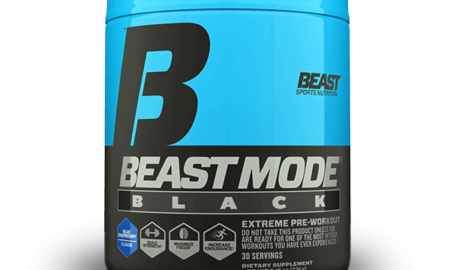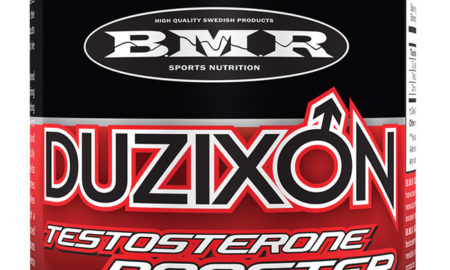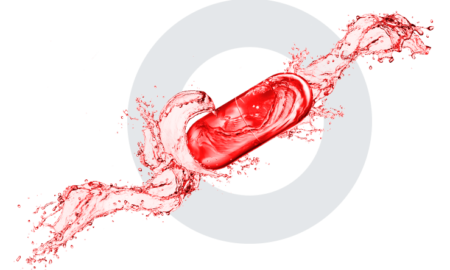Many years ago I had a discussion with a man who went on to win multiple Mr. Olympia titles. When I asked him about drinking milk, he told me that he always removed all dairy foods from his diet prior to a contest, explaining that milk was “rich in estrogens.” Estrogens are associated with fat deposition just under the skin, which obscures muscular definition. In addition, estrogen retains water, blunting hard-earned muscularity. You may recall the scene in the film “Pumping Iron” where Arnold Schwarzenegger is asked about drinking milk. He responds by stating that “milk is for babies.”
But does milk actually contain active hormones, particularly estrogen?
Like testosterone, estrogen is a steroid hormone and is rapidly degraded in the liver when taken orally. Unless, of course, the structure of the hormone has been manipulated to block the first-pass liver metabolism—as is the case with synthetic oral versions of testosterone, a.k.a. anabolic steroids. Examples of orally active estrogens include birth control pills for women and other forms of estrogen that treat menopause symptoms. According to a recent study, however, commercial milk products contain active estrogen metabolites.
Estrogen is a potent cancer agent, and some studies show that a higher intake of milk products may be linked to ovarian and other cancers in women and possibly prostate cancer in men. That’s highly debatable among researchers, however, and definitive answers are not on the record. On the other hand, milk and dairy products supply 60 to 70 percent of the total estrogen intake in food. In recent years the amount of estrogens in milk have increased because of certain dairy-farming practices. Most milk now comes from cows far into the late stages of pregnancy, when estrogen concentration in the milk peaks. One study found that milk from a cow late in pregnancy contained 33 times more estrone sulfate than milk obtained from a nonpregnant cow.
The study analyzed the estrogen metabolite content in whole milk, skim and 2 percent fat milk and buttermilk. Buttermilk, whole milk and 2 percent fat milk contained significant levels of biologically active estrogen metabolites. Skim milk contained the least, buttermilk the most. Researchers also tested soy milk and found no estrogen metabolites. Not only was skim milk lowest in estrogen metabolites, but 98 percent of the estrogen it did contain was in the conjugated, or less active, form. Buttermilk contained the most highly active form of estrogen metabolites.
The authors note that while estrogen metabolites in these milk products are much fewer than what are found in estrogen-based drugs, we don’t yet know their long-term effect. The study also mentioned that milk contains progesterone, another type of hormone found in higher concentrations in women.
Other studies suggest that milk contains insulinlike growth factor 1, considered the active anabolic component of growth hormone. Two variants of IGF-1 are required for muscle repair and growth. Trouble is, IGF-1 also encourages rapid cell division and prevents the self-destruction of cells, both of which can be dangerous in regard to cancer. The big controversy about milk is the practice of giving recombinant IGF-1 to cows to increase their milk production. Some say that milk from those cows contains higher than normal levels of IGF-1, which is detectable after pasteurization and homogenization. In addition, bovine and human IGF-1 share the same amino acid sequences, which means that the bovine version can interact with human IGF-1 cell receptors.
Critics contend that since IGF-1 is an amino acid–based hormone, it’s largely degraded in the gut. On the other hand, adults who drink a lot of milk have an average 10 to 20 percent increase in circulating IGF-1.
How can IGF-1 survive the formidable digestive barrier? The major protein in milk, casein, contains a protease inhibitor that may shield IGF-1 from degradation. Milk intake also increases the ratio of free-to-bound IGF-1, which increases the activity of IGF-1 but also speeds its breakdown.
While the link between IGF-1 and milk is hardly definitive, the one between milk and insulin is more realistic. Although milk has a low-glycemic-index number (about 15 to 30), milk and milk-based foods paradoxically have a high insulin-stimulating effect, possibly because of certain protein fractions found in milk. All dairy products, with the exception of hard cheese, have potent insulin-boosting effects. Adding 200 milliliters of milk to a low-glycemic-index meal increases the insulin response by 300 percent.
Ironically, many “negative” factors may aid bodybuilding. For example, increased IGF-1 may have some anabolic impact. The increased insulin speeds the entry of amino acids into muscle for added muscle protein synthesis and exerts an anticatabolic effect in muscle. I suspect that the potent insulin release is there for a reason, as milk is the primary food for the most rapid period of human growth and amino acid uptake is integral to it. Insulin also helps regenerate depleted muscle glycogen. In fact, studies show that drinking milk after a workout leads to more efficient recovery than most commercial sports drinks do. Nor can you escape the fact that milk contains whey, the highest-biological-value protein, as well as other active peptides that emerging research shows may provide enormous health benefits.
If you’re still concerned about estrogen and other hormone effects of milk, you can get most of the benefits of milk from a blend of casein and whey milk proteins, which give you most of the health factors contained in milk, minus the hormone activity. Whey does, however, bring on insulin release and possibly IGF-1 activity. Also, if you believe that drinking milk will smooth you out before a contest because of its estrogen content, consider that the average man produces 136,000 nanograms of estrogen each day, far more than you’d get from drinking several gallons of milk.
Farlow, D.W., et al. (2009). Quantitative measurement of endogenous estrogen metabolites, risk factors for development of breast cancer, in commercial milk products by LC-MS/MS. J Chromto B. 877(13):1327-1334.




















You must be logged in to post a comment Login